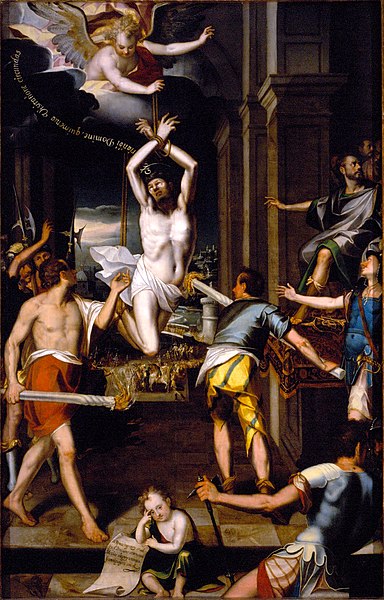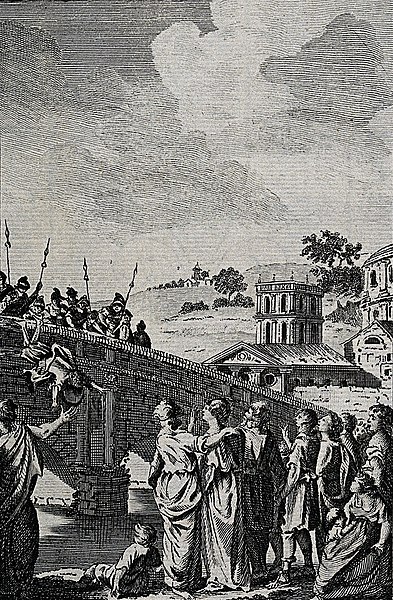Pope Pontian was the bishop of Rome from 21 July 230 to 28 September 235. In 235, during the persecution of Christians in the reign of the Emperor Maximinus Thrax, Pontian was arrested and sent to the island of Sardinia.
Portrait by Spinello Aretino, c. 1383 (Hermitage Museum)
The Martyrdom of Saint Pontianus (Baltasar de Echave, c. 1612)
Interior of San Ponziano, Rome
Persecution of Christians in the Roman Empire
Christians were persecuted, sporadically and usually locally, throughout the Roman Empire, beginning in the 1st century AD and ending in the 4th century. Originally a polytheistic empire in the traditions of Roman paganism and the Hellenistic religion, as Christianity spread through the empire, it came into ideological conflict with the imperial cult of ancient Rome. Pagan practices such as making sacrifices to the deified emperors or other gods were abhorrent to Christians as their beliefs prohibited idolatry. The state and other members of civic society punished Christians for treason, various rumored crimes, illegal assembly, and for introducing an alien cult that led to Roman apostasy. The first, localized Neronian persecution occurred under Emperor Nero in Rome. A more general persecution occurred during the reign of Marcus Aurelius. After a lull, persecution resumed under Emperors Decius and Trebonianus Gallus. The Decian persecution was particularly extensive. The persecution of Emperor Valerian ceased with his notable capture by the Sasanian Empire's Shapur I at the Battle of Edessa during the Roman–Persian Wars. His successor, Gallienus, halted the persecutions.

The Christian Martyrs' Last Prayer, by Jean-Léon Gérôme (1883)
Martyrdom of Calepodius (intaglio print)
Martyrdom of Saint Lawrence (Christian heroes and martyrs, 1895)
The Condemnation of Saint Lawrence by the emperor Valerian (Fra Angelico, c. 1450)







